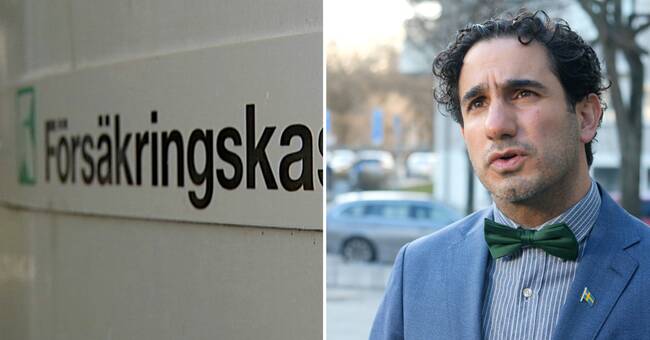- People should not get rid of sickness benefits through a test against fictitious jobs, but now the test of work ability should be done against specified occupational groups, says Minister of Social Insurance Ardalan Shekarabi (S) to SVT.
The Government therefore wants to make further changes in how the Swedish Social Insurance Agency assesses the working capacity of the long-term unemployed.
Work ability is set against occupational group
Previously, it worked like this: If you have been on sick leave for 180 days, the Swedish Social Insurance Agency assessed the sick person's work ability against the entire labor market.
In practice, this has meant that many people have lost their compensation.
Now the government wants the working capacity to be done instead against a specified occupational group.
Försäkringskassan must tell the individual within which occupational group it has been assessed that there is any ability to work.
That is the content of a bill that the government will decide on tomorrow.
- What happened when the tests were done against fictitious jobs is that many people lost confidence in health insurance.
Now it becomes very clear what work you have a work ability compared to, and then the insured also has the opportunity to appeal this decision, says Ardalan Shekarabi.
On 15 March, new legislation came into force, which means that the ability to work after 180 days must be assessed against the workplace you already have, instead of against the entire labor market - but only if there are compelling reasons to return within 365 days to the same extent as before. .
Fewer will be insured
Together with this change, the Minister believes that fewer people are likely to be insured.
- In combination with the change in the law that came into force on March 15, it means that more people will be able to keep the sickness benefit, says Ardalan Shekarabi.
Tomorrow, the government also intends to change the so-called regulation letter for the Swedish Social Insurance Agency, with the intention of not reducing the sickness benefit rate by refusing.
- We do not want to reduce sickness rates by rejecting people's applications for sickness benefits.
What the Swedish Social Insurance Agency must do now is to focus on previous rehabilitation efforts when people become ill and preventive measures so that people do not become ill, says Ardalan Shekarabi.

